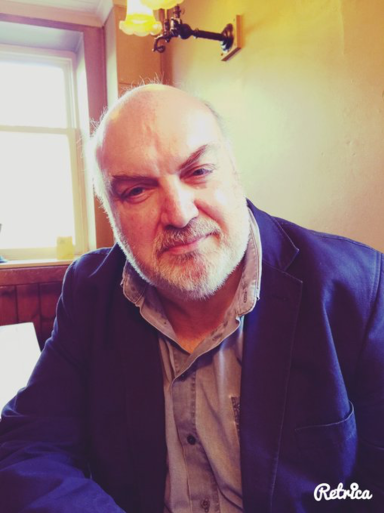This week in our 'meet the team' blog post series, we meet project member, Professor Stephen Coleman.

Hi Stephen! Would you mind introducing yourself for our readers?
I am Professor of Political Communication at the University of Leeds. My most recent books are How People Talk About Politics: Brexit and After (Bloomsbury, 2020); with Jim Brogden, Capturing the Mood of Democracy; the British General Election 2019 (Palgrave, 2020), Can the Internet Strengthen Democracy? (Polity Press, 2017) and How Voters Feel, (Cambridge University Press, 2013).
Thank you! Can you give me a brief overview of your research and your involvement in the project?
We base our democracy on a number of shaky assumptions.
We say that all citizens are equal, but there is a radical disparity in the civic resources that are available to different groups in society.
We say that everyone has a voice and that all voices count, but many people are faced with formidable challenges when they try to make their voices heard, let alone understood.
The strand of the project that I lead is about how contemporary young adults confront those challenges.
But it is not just descriptive or analytical. We have a practical question: How can young citizens find new, better ways of having a democratic voice?
That's all very interesting! So how are you approaching 'oracy' in your work? And what does this concept mean to you?
It’s great to see so many practitioners working with the concept of oracy these days. It’s no longer a marginal ideal. I see this project’s role as being to critically question the assumptions and practices of oracy. We are not conducting this research in order to ‘sell’ oracy, but to explore where it came from, what it now means and how it can be made relevant to all parts of our society. Through a detailed study of how voice and citizenship are related, I would hope that we can help to raise some of the challenging questions about oracy that its advocates and practitioners don’t necessarily have time to reflect upon.
Sounds like you have a lot of work to do! So what approaches and methods are you using to explore these questions?
The strand of the project that I’m pursuing with Cassie and Anna uses ethnographic methods. This involves direct microanalysis of contexts in which civic talk occurs and an attempt to understand what it is about such situations that enable or constrain civic agency.
In order to undertake this research, we turn to Erving Goffman’s conception of the local interaction order as the social space in which identities are presented, maintained, repaired and occasionally challenged. My methodological mantra is ‘Start small and build a socially meaningful picture’ rather than ‘Start with macro-social relations and trace them to ground level’.
Overall, what impact do you hope this project will have?
It’s hard to be at all sure about what we’ll discover and who will care, but these are some of the ways in which we’d like to leave our mark:
- We hope that this project will help members of the groups of young adults we’re working with to see the importance of our research questions; to find new ways of becoming more expressively empowered citizens (including finding ways that they’re already using without registering them as such); and to feel well represented by the research outputs.
- We hope to engage with educators, including oracy advocates, in a constructive dialogue about the values and practices of civic voice.
- We hope to help policy-makers think about ways of encouraging, hearing and learning from young people’s voices.
Finally, one last question, what are your research plans over the next six months?
We will be conducting and analysing four ethnographic studies. These will constitute the empirical material for a book about vernacular citizenship.
We have an ambition to develop an archive of young civic voices and to display these in an exhibition.
The most productive outcome from research projects is to end up with new questions that one didn’t have at the beginning. In six months from now I hope to be asking – maybe even beginning to answer – such questions.
Next week, we meet Dr Hester Barron

